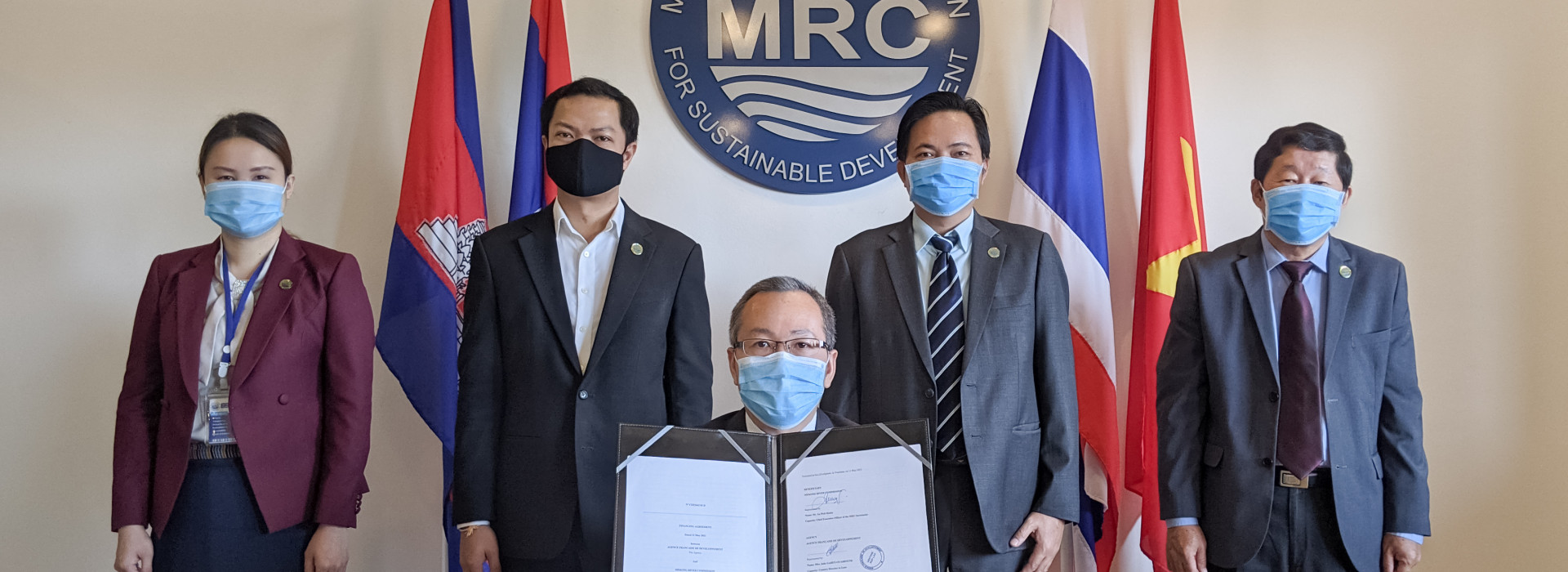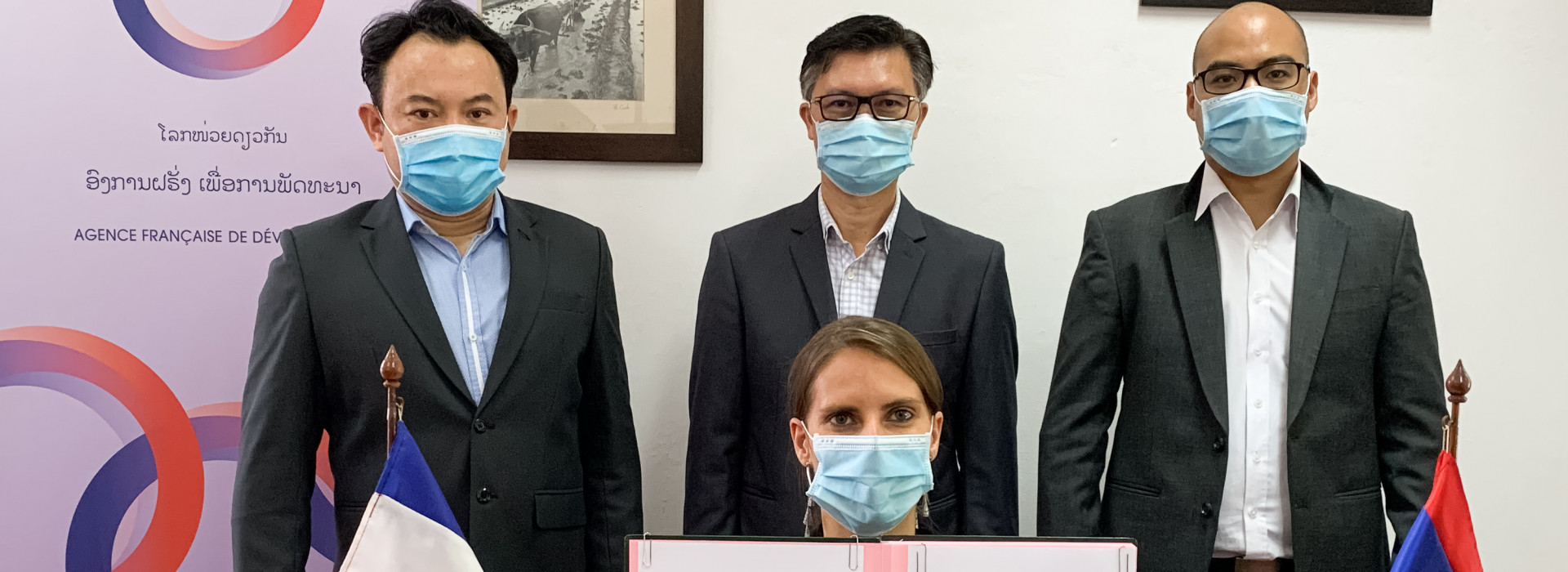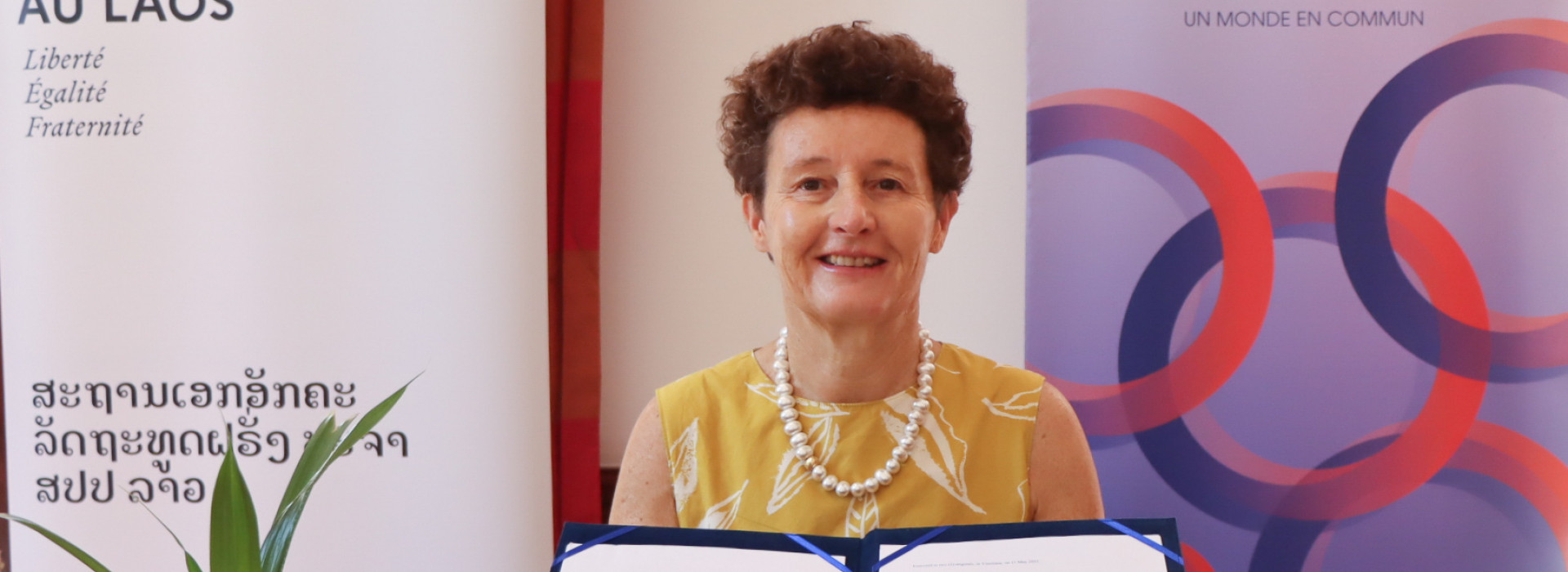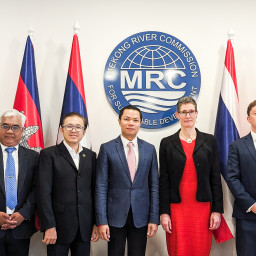Mekong River monitoring network improvement receives French support
Hydrological stations expansion along the Mekong
Vientiane, Lao PDR, 17 May 2021 – The French Government today granted EUR 1.5 million to the Mekong River Commission (MRC) to improve and expand its river monitoring network for better river monitoring and management of water infrastructure project operations along the mainstream and key tributaries of the Mekong.
The Mekong River is the lifeblood of millions of people who depend on the river for their livelihoods. But as development accelerates and climate change intensifies, insufficient data and information on water infrastructure in the basin and the way this infrastructure is operated have made it difficult to forecast impacts.
“We hope to strengthen the current river monitoring system, making it more efficient, reliable and capable of collecting and transmitting real-time rainfall, water level, and other environmental data to aid responsible development and management of the river,” said Dr An Pich Hatda, MRC Secretariat CEO.
The funding, made available through the Agence Française de Développement (AFD), will span four years from 2021 to 2025. It aims at increasing the ability of the MRC and its Member Countries – Cambodia, Lao PDR, Thailand and Viet Nam – to monitor rainfall and river flow in order to better understand flow changes and corresponding impacts of development projects and climate change on the riverine communities and the environment, especially water quality, sediment, and fisheries.
The new funding is a follow-up to two other grants of EUR 4 million from France for the first two phases of the hydro-meteorological network project. During the first phase (2007–2012), the MRC established a network of 49 hydro-meteorological stations along the Mekong and its tributaries to collect near-real time data of water level and rainfall in every 15 minutes for flood forecasting and river monitoring.
During the second phase (2016–2022), the MRC has expanded the network with 11 additional stations along the mainstream and improved the understanding of river dynamics and the application of data for other areas of water resources management.
“The funding should allow the MRC to advance the knowledge of the hydrological profile of the Mekong River and its main tributaries and thus create an integrated monitoring system for better management of the river,” said Ms Julie Gabet-Ouahioune, AFD Country Director for Lao PDR, as she inked the new grant agreement that was also co-signed by Madame Florence Jeanblanc-Risler, Ambassador of France to Lao PDR.
Since 2006, France has granted over EUR 10 million (approx. USD 12 million) to support river monitoring, flood and drought management, climate change, and environmental management.
France is one of a dozen of development partners supporting implementation of the MRC’s new Strategic Plan. As a key tool to implementing a new Basin-wide Development Strategy 2021–2030, this five-year plan will enable the four Member Countries to maintain the ecological functions of the river, bring about needed investments through proactive regional planning, and strengthen resilience against disasters.
Read this news in Khmer, Lao, Thai or Vietnamese.
Note to editors:
About the MRC: The MRC is an intergovernmental organisation for regional dialogue and cooperation in the LMB, established in 1995 based on the Mekong Agreement between Cambodia, Lao PDR, Thailand, and Viet Nam. The organisation serves as a regional platform for water diplomacy as well as a knowledge hub of water resources management for the sustainable development of the region.
About AFD: The AFD Group is a public entity which finances, supports and expedites transitions towards a more just and sustainable world. As a French overseas aid platform for sustainable development and investment, we work with our partners to create shared solutions, with and for the people of the global South.
Active in more than 4,000 projects in the French overseas departments and some 115 countries, our teams strive to promote health, education and gender equality, and are working to protect our common resources — peace, education, health, biodiversity and a stable climate.
###







